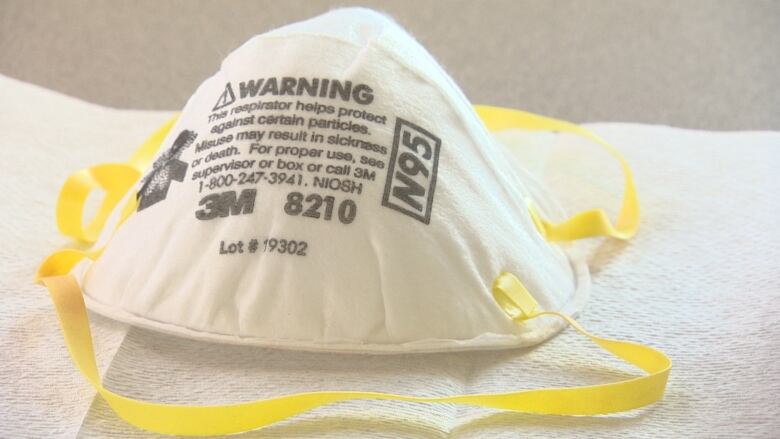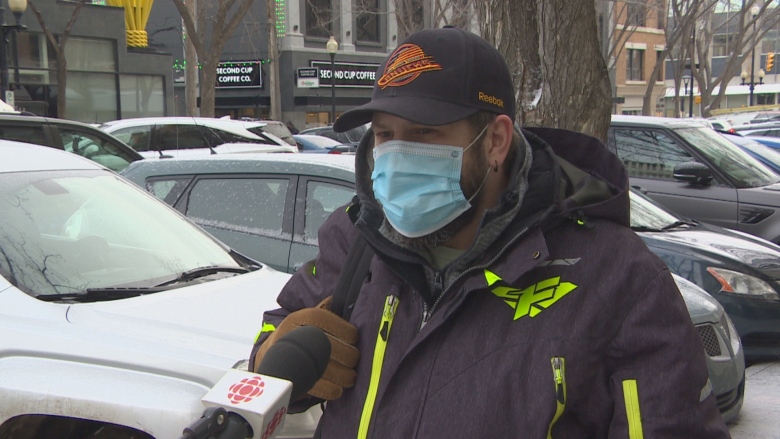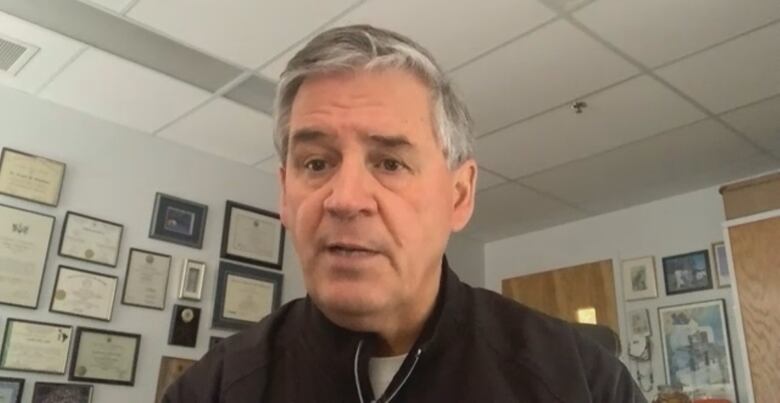As officials encourage better masks to ward off Omicron, stores in Sask. sell out of them
Clinical microbiologist says N95 and KN95 masks offer robust protection

As cases of the Omicron variant of COVID-19 continue to jump in Saskatchewan, some stores are struggling to keep up with demand for N95 and KN95 masks.
Earlier this week, the province's chief medical health officer Dr. Saqib Shahaband Canada's chief public health officer Dr.Theresa Tam said cloth or surgical masks especially with just one layer are likely ineffective against the Omicron variant.
That's leading to a spike in sales at some stores.
"We don't have any (N95 masks) left now," said Mai Huynh, a manager at Canadian Tire's Southland Mall locationin Regina. "We were not selling good for a while. Suddenly (it) just picked up this week."
Several other stores CBC News contacted Thursday were facing the same situation, with some unsure of when the next shipment of masks would arrive.

Some people have been lucky to get them.
Mitch Lysak, a resident of Saskatoon, said he'sbeen wearing them for some time and agrees that people should be upgrading their mask choice.
"As somebody who's already doing that as an educator in the high school setting, no problem whatsoever," he said.
Masks only effective if they fit: expert
Dr. Joseph Blondeau, the head of clinical microbiology at the University of Saskatchewan, agrees N95 and KN95 masks are a good choice. If none are available,he recommends double masking with surgical masks as an alternative.
The most important thing, he says, is that the mask must fit properly, no matter what kind is used.

"If the mask is not worn properly or if it doesn't fit properly, then the effectiveness is substantially reduced," he said.
"If it has big gaping holes on the side of it, with a highly transmissible virus, that may be just be enough room for the virus to get in and cause infection."
Company aims for better fit, environmental benefits with its mask
Jason Tratch is hopeful his company's mask called theCA-Gill Mask will be the most effective product against the Omicron variant.
Tratch, who is based in Saskatoon,says the mask has a silicone shell and adjustable strap. Hebelieves itwill halt air leakage, thereby preventing airborne transmission of the virus better than N95 respirators.

The mask and its filters arereusable, which he says will help cut down on theexcess waste created by other masks.
"We need to be responsible as humans in the circular economy," said Tratch. "How many surgical masks are being thrown away and how many plastic wrappers everyday? It's insane."
Alexa Mofazzaliwith Loraas Disposal North in Saskatoonsaid the company has seen a big increase in mask and other PPE waste since the start of the pandemic.
"We're seeing close to 10,000 masks and single-use gloves everyday," she told CBC Radio'sBlue Sky on Wednesday.
"People say, 'Oh, it's a paper mask. Paper is recyclable, let's put it in the bin.' But it's not that easy, especially when it comes to something that's basically a biohazard like that."
She recommends people throw used PPE in the garbage instead.
With files from Mercia Mooseely, Radio-Canada and Blue Sky












_(720p).jpg)


 OFFICIAL HD MUSIC VIDEO.jpg)
.jpg)



























































































